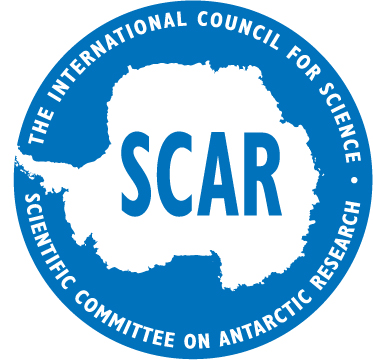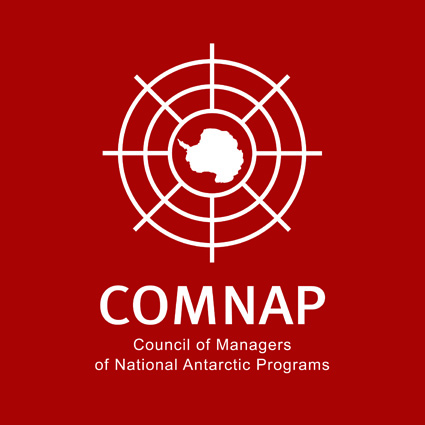![]() Three leading Antarctic organisations today announce opportunities for early-career researchers. The Scientific Committee on Antarctic Research (SCAR), the Council of Managers of National Antarctic Programs (COMNAP) and the Commission for the Conservation of Antarctic Marine Living Resources (CCAMLR) are working together to attract talented early-career researchers, scientists, engineers and other professionals to strengthen international capacity and cooperation in fields such as climate, biodiversity, conservation, humanities and astrophysics research.
Three leading Antarctic organisations today announce opportunities for early-career researchers. The Scientific Committee on Antarctic Research (SCAR), the Council of Managers of National Antarctic Programs (COMNAP) and the Commission for the Conservation of Antarctic Marine Living Resources (CCAMLR) are working together to attract talented early-career researchers, scientists, engineers and other professionals to strengthen international capacity and cooperation in fields such as climate, biodiversity, conservation, humanities and astrophysics research.
SCAR and COMNAP have again joined forces to launch fellowships for early-career researchers. SCAR will offer 3 to 4 fellowships of up to USD $15,000 each for 2018 and COMNAP will offer up to 1 fellowship with funding of up to USD $15,000. The fellowships enable early-career researchers to join a project team from another country, opening up new opportunities and often creating partnerships that last for many years and over many Antarctic field seasons. Note that the application process for SCAR and COMNAP fellowships are now separate and the eligibility criteria differs. The deadline for SCAR and COMNAP fellowship applications is 11 July 2018.
The SCAR and COMNAP schemes are launched in conjunction with the Scientific Scholarship Scheme of the Commission for the Conservation of Antarctic Marine Living Resources (CCAMLR). The CCAMLR Scholarship provides funding of up to AUD $30,000 to assist early-career scientists to participate in the work of the CCAMLR Scientific Committee and its working groups over a period of two years. The objective of the scheme is to build capacity within the CCAMLR scientific community to help generate and sustain the scientific expertise needed to support the work of CCAMLR in the long-term. The deadline for CCAMLR scholarship applications is 1 October 2018.
All three schemes are being jointly promoted by the three organisations.
Background information:
For more information on SCAR and COMNAP Fellowships, visit the Fellowships section of the SCAR website or the COMNAP website.
For information on CCAMLR Scholarships, visit the Scientific Scholarship page of the CCAMLR website.
 The Scientific Committee on Antarctic Research (SCAR)
The Scientific Committee on Antarctic Research (SCAR)
The Scientific Committee on Antarctic Research (SCAR) is an inter-disciplinary body of the International Council for Science (ICSU). SCAR is charged with initiating, developing and coordinating high quality international scientific research in and from the Antarctic region, and on the role of the Antarctic region in the Earth system.
SCAR Science Groups represent the scientific disciplines active in Antarctic research. They conduct the scientific business or SCAR and provide regular reports. In addition to carrying out its primary scientific role, SCAR also provides objective and independent scientific advice to the Antarctic Treaty Consultative Meetings and other policy-oriented organizations, on issues of science and conservation affecting the management of Antarctica and the Southern Ocean.
 The Council of Managers of National Antarctic Programs (COMNAP)
The Council of Managers of National Antarctic Programs (COMNAP)
COMNAP brings together the National Antarctic Programmes of 30 Antarctic Treaty countries. Formed in 1988, the purpose of COMNAP is to develop and promote best practice in managing the support of scientific research in Antarctica. It does this by: Serving as a forum to develop practices that improve effectiveness of activities in an environmentally responsible manner; Facilitating and promoting international partnerships; Providing opportunities and systems for information exchange; and Providing the Antarctic Treaty System with objective and practical, technical and non-political advice drawn from the National Antarctic Programmes’ pool of expertise.
The Commission for the Conservation of Antarctic Marine Living Resources (CCAMLR)
The Commission for the Conservation of Antarctic Marine Living Resources (CCAMLR) was established by international convention in 1982 with the objective of conserving Antarctic marine life. CCAMLR is an international commission with 25 Members, and a further 11 countries have acceded to the Convention. Based on the best available scientific information, the Commission agrees a set of conservation measures that determine the use of marine living resources in the Antarctic. CCAMLR practices an ecosystem-based management approach. This does not exclude harvesting, as long as such harvesting is carried out in a sustainable manner and takes account of the effects of fishing on other components of the ecosystem.
